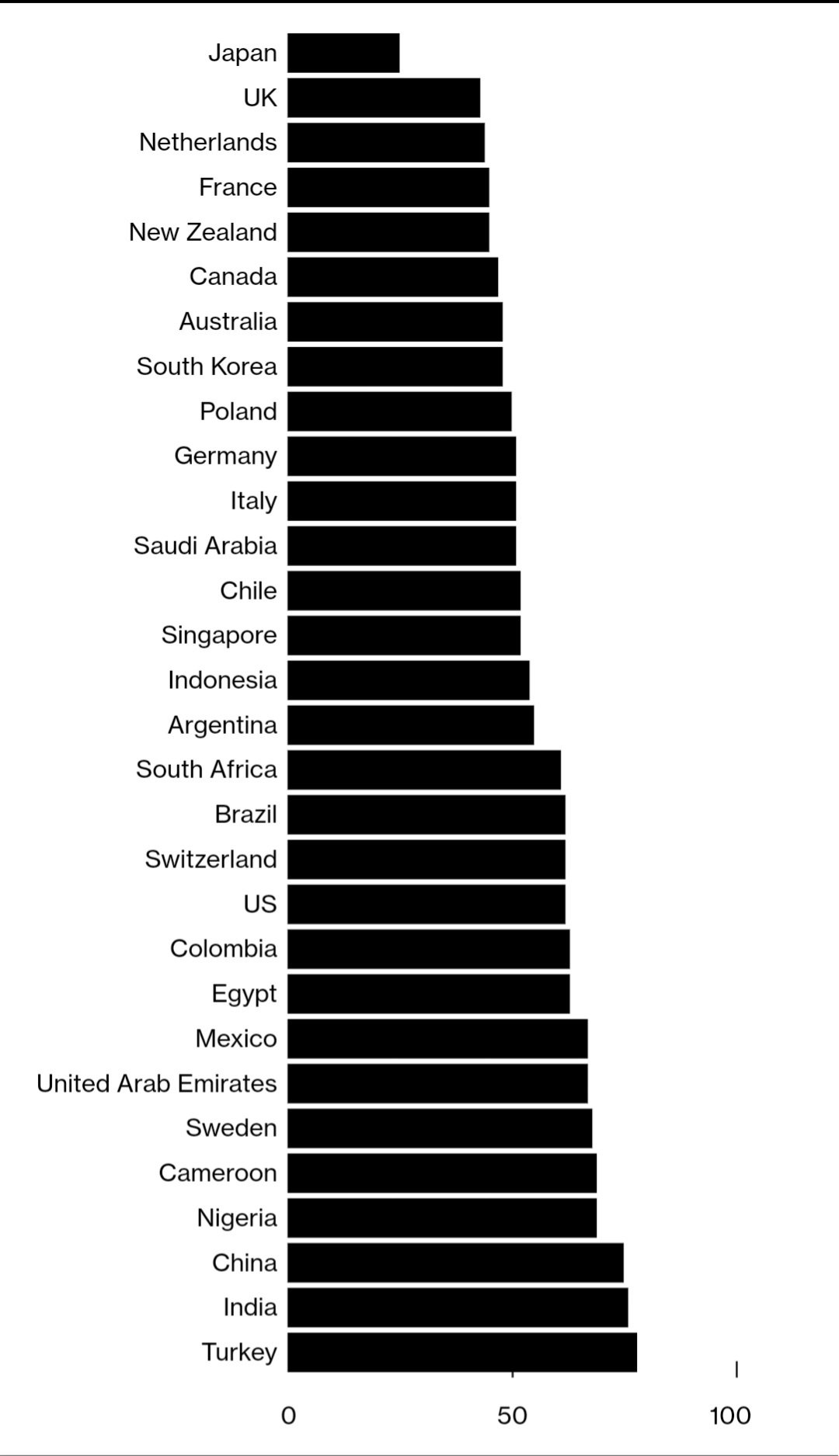ladyofthrowaway
I've heard of Bikers Against Child Abuse that plays upon the stereotype to guard kids against their abusers and provide a protective presence as the kids testify in court 🤔
La La La Shawarma ~
This isn't really the case in Norway (anymore?)
Here is an English summary of the government release.
Maybe because it's been overwritten by the brutality of Israel's latest massacres? 🤨
Norway isn't in the study though? 🤨
Anyway as someone living in Norway, I can say that being one of the "happiest countries in the world" is very easy to achieve when a large percentage of the population has low standards from poor global exposure.
Working hours, worker protections and safety nets can be good indicators. While I don't really trust McKinsey, I can say that "employee well-being" is more than these measures. In this survey, they looked at physical, mental, social and spiritual health. I'd guess that if Norway was included, they would actually do pretty badly.
Our health system - for both physical and mental health - is failing very badly (it's also not free, not even all that cheap by the way.) I say this as someone who has used the system, have friends and family who have used it, and have friends working in both sectors. Immigrant friends and colleagues, some from third-world countries, return home when they need anything relating to health rather than rely on the local system. There is also a growing medical tourism industry, where people travel to places like Poland and Romania.
Social health is also probably low-ranking, especially for immigrant employees. Language and the culture of social exclusion by locals are large barriers to entry. A different survey has actually shown Norway ranking last in expat happiness/desirability.
Ultimately, all countries have their good and bad sides. I guess I just wanted to provide some insight into the misconceptions of Norway people generally have.
Behind the Bloomberg paywall:
Japan came in last in a global ranking of employees’ well being, measured by assessing physical, mental, social and spiritual health, the results of a survey conducted by McKinsey Health Institute showed. The island nation scored 25% in the poll of more than 30,000 workers across 30 countries, according to the study released on Thursday. Turkey was highest at 78%, followed by 76% for India and 75% for China. The global average was 57%.
(Graph in the article had no axis labels 🤷♀️)

Although Japanese businesses have built a reputation for offering lifetime employment and job security, it also means employees can find it hard to change jobs if they aren’t happy. Japan consistently has had low ratings in international surveys and the results reflect it, according to Rochelle Kopp, who advises companies on cross-cultural communications and business practices.
“There’s this documented tendency to rate yourself low,” said Kopp, who is also a board member of MS&AD Insurance Group Holdings Inc.“There are significant issues in Japan with lack of satisfaction in the workplace, with significant levels of stress.” At the same time, an increasing number of Japanese workers are on short-term contracts, fueling uncertainty, she added.
According to the McKinsey survey, employees who had positive work experiences reported better holistic health, are more innovative at work and show higher job performance.
“For most adults, the majority of waking daily life is spent at work,” the report’s authors wrote. “That offers employers an opportunity to influence their employees’ physical, mental, social, and spiritual health.”
Full McKinsey study here
Maybe there was a picture of bears on the packaging and it thought that meant pet food for bears lol
You can read about it here
In this case it'll be the second meaning (disdain)